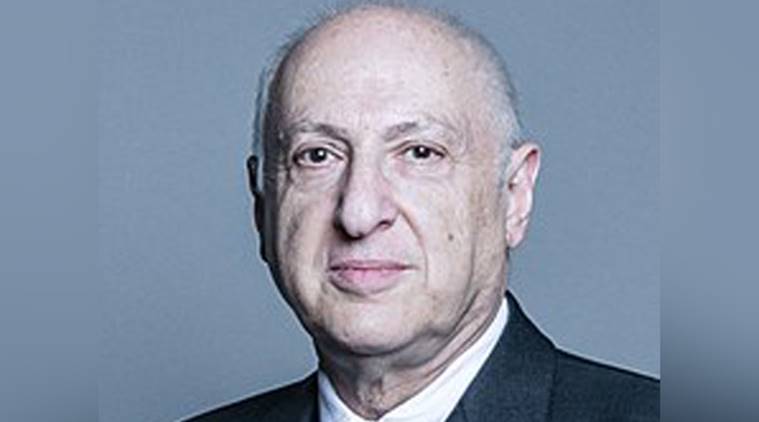 Lord Alexander Carlile (Source: ANI)
Lord Alexander Carlile (Source: ANI)
A NUDGE from Bangladesh and a rethink by South Block “at the eleventh hour” led to British lawmaker Lord Alexander Carlile being turned back at the Delhi airport Wednesday night, top sources told The Indian Express. Carlile, who is an advisor to the legal team of jailed former Bangladesh prime minister Khaleda Zia, was not allowed to enter India for not having an “appropriate visa”, according to the Ministry of External Affairs (MEA). The London-based lawyer claimed he had a “business visa”, but MEA countered that his intended activities were not compatible with his visa category. Sources said the Indian security establishment and some sections in the foreign policy apparatus raised the red flag over Carlile’s arrival and schedule in the National Capital, which included a press conference.
Sources said top functionaries in the Bangladesh government had conveyed to Indian diplomats in the last few days — Bangladesh Foreign Secretary Shahidul Haque met Indian Deputy High Commissioner Adarsh Swaika — that Carlile’s activities would amount to “anti-Bangladesh activities”.
However, sources said, the initial assessment by MEA was that India must engage with leaders or representatives of political parties, cutting across Bangladesh’s political spectrum. Based on that assessment, Carlile was granted a business visa as his application submitted at the Indian High Commission in London listed meetings in Delhi.
However, security agencies and a section in South Block were of the view that Carlile was “not a political leader” and his addressing a press conference — where he would take up what he calls the “unfair and unjust approach” of Bangladesh against Khaleda Zia — would amount to “political activity”. South Block felt this would “unnecessarily drag” India into the internal political rivalry between Zia and Bangladesh Prime Minister Sheikh Hasina. “We had zero interest in getting involved in their internal rivalry. We wanted to steer clear of their mud-slinging. But it seems that getting India involved was the motive of Zia’s legal counsel,” sources said.
Sources said New Delhi had engaged with leaders of Hasina’s BNP in the recent weeks, with the party’s vice-chairman Abdul Awal Mintoo, standing committee member Amir Khasru Mahmud Chowdhury and international affairs secretary Humayun Kabir visiting India. Mintoo reportedly met Minister of State for External Affairs M J Akbar in New Delhi on June 7. The leaders also met Congress president Rahul Gandhi and held meetings at Institute for Defence Studies and Analyses, Observer Research Foundation, Vivekananda International Foundation and Dr Syama Prasad Mookerjee Research Foundation. “But they did not indulge in any politics or hold press conferences here,” sources said. Security agencies also indicated that the Hasina government has been “extremely cooperative”, and cracked down on anti-India terror groups and individuals operating in Bangladesh. As the assessment about Carlile’s visit changed virtually at the last-minute, his visa was revoked, sources said.
Denied entry, Carlile spoke to media in Delhi via video conference from London. He alleged that he was denied entry under pressure from the Bangladeshi government. Indian authorities gave “no true reason” for revoking the visa and denying entry on arrival last night, Carlile alleged. He also accused Delhi of capitulating to pressure from Bangladesh.
Asked about the MEA’s assertion that his intended activity in India was incompatible with his visa application, Carlile said it was “completely untrue” and a “lie”. “I told them in the visa application that I was coming for meetings as a lawyer and as the UK’s chairman of the Commonwealth rights initiative. They knew perfectly well why I was coming,” he said. MEA spokesperson Raveesh Kumar said: “His intended activity in India was incompatible with the purpose of his visit as mentioned in his visa application. It was, therefore, decided to deny him entry into India upon arrival.”